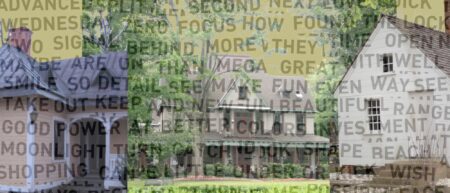 Since our founding in 2013, Proximity has aspired to publish a wide range of voices. In an industry that prizes straight, cisgender male points of view, we’re proud to share the microphone with so many courageous and talented writers who are female, gender-nonconforming, and LGBTQ. Yet, of the 108 pieces published in our first twelve issues, fewer than a dozen were written by people of color.
Since our founding in 2013, Proximity has aspired to publish a wide range of voices. In an industry that prizes straight, cisgender male points of view, we’re proud to share the microphone with so many courageous and talented writers who are female, gender-nonconforming, and LGBTQ. Yet, of the 108 pieces published in our first twelve issues, fewer than a dozen were written by people of color.
We have work to do, and it’s long overdue.
As Proximity‘s editorial team takes time to reflect upon its founding mission, and how best to move into our fourth year with intention, we decided to make our internal discussions public, we invited writers we respect to reflect upon and explore (in essay form) a few important ideas and concerns with us, we and we reached out to editors we believe are doing things right (in one way or another). As a result, we curated and published a series on race, gender, intersectionality, and literary responsibility throughout the month of February. What you’ll find here is a collection of those posts in one place. We encourage you to read, to share, to discuss, and to (please) comment.
 This Editorial discussion included the following members of Proximity‘s editorial team: Shasta Grant, Carrie Kilman, Towles Kintz, Maggie Messitt, Stacy Muszynski,and editor emeritus Traci Macnamara.
This Editorial discussion included the following members of Proximity‘s editorial team: Shasta Grant, Carrie Kilman, Towles Kintz, Maggie Messitt, Stacy Muszynski,and editor emeritus Traci Macnamara.
II.
Economic Violence,
by Melissa Chadburn
 MELISSA CHADBURN has written for Guernica, Buzzfeed, Poets & Writers, Salon, American Public Media’s Marketplace, Al Jazeera America, and dozens other places. She is a fellow for The Economic Hardship Reporting Project. Her essay, “The Throwaways,” received notable mention in Best American Essays and Best American Nonrequired Reading. Her debut novel, A Tiny Upward Shove, is forthcoming with Farrar Straus and Giroux in spring of 2017. ☆ Judge Bronwen Dickey selected “The Readiness Assessment,” as second runner-up of Proximity’s 2016 Narrative Journalism Prize.
MELISSA CHADBURN has written for Guernica, Buzzfeed, Poets & Writers, Salon, American Public Media’s Marketplace, Al Jazeera America, and dozens other places. She is a fellow for The Economic Hardship Reporting Project. Her essay, “The Throwaways,” received notable mention in Best American Essays and Best American Nonrequired Reading. Her debut novel, A Tiny Upward Shove, is forthcoming with Farrar Straus and Giroux in spring of 2017. ☆ Judge Bronwen Dickey selected “The Readiness Assessment,” as second runner-up of Proximity’s 2016 Narrative Journalism Prize.
III.
To be True in Deed to Anti-Racism Values,
by Purvi Shah
 Known for her sparkly eyeshadow and raucous laughter, PURVI SHAH inspires change as a social justice advocate and writer. She is curious about language as dreamwork for love, transformation, and justice. In 2008, she won the inaugural SONY South Asian Social Service Excellence Award for her leadership fighting violence against women. During the 10th anniversary of 9/11, she directed Together We Are New York, a community-based poetry project to highlight Asian American voices and experiences. Her award-winning poetry book, Terrain Tracks, plumbs migrations and belongings. Dark Lip of the Beloved: Sound Your Fiery God-Praise, her recent chaplet, explores women’s devotions, status, and being. In addition to being a 2016-17 LMCC Workspace Resident, she currently serves as a board member of The Poetry Project and a contributing editor to Aster(ix). (@PurviPoets, purvipoets.net)
Known for her sparkly eyeshadow and raucous laughter, PURVI SHAH inspires change as a social justice advocate and writer. She is curious about language as dreamwork for love, transformation, and justice. In 2008, she won the inaugural SONY South Asian Social Service Excellence Award for her leadership fighting violence against women. During the 10th anniversary of 9/11, she directed Together We Are New York, a community-based poetry project to highlight Asian American voices and experiences. Her award-winning poetry book, Terrain Tracks, plumbs migrations and belongings. Dark Lip of the Beloved: Sound Your Fiery God-Praise, her recent chaplet, explores women’s devotions, status, and being. In addition to being a 2016-17 LMCC Workspace Resident, she currently serves as a board member of The Poetry Project and a contributing editor to Aster(ix). (@PurviPoets, purvipoets.net)
IV.
Creating Spaces for Marginalized Voices,
by Jael Richardson
 JAEL RICHARDSON is the author of The Stone Thrower: A Daughter’s Lesson. The book received a CBC Bookie Award and earned Richardson an Acclaim Award and a My People Award as an Emerging Artist. Her essay “Conception” is part of Room’s first Women of Colour edition, and excerpts from her first play, my upside down black face, are published in the anthology T-Dot Griots: An Anthology of Toronto’s Black Storytellers. Richardson has an MFA in Creative Writing from the University of Guelph, and she lives in Brampton, Ontario where she serves as the Artistic Director for the Festival of Literary Diversity. (@JaelRichardson) * Editor’s Note: Jael moderated an outstanding #AWP17 panel titled “Creating Space for Marginalized Writers: How to Create a Diverse Programming Lineup,” with Léonicka Valcius, Kathleen Frase, Nailah King, and Bänoo Zan.
JAEL RICHARDSON is the author of The Stone Thrower: A Daughter’s Lesson. The book received a CBC Bookie Award and earned Richardson an Acclaim Award and a My People Award as an Emerging Artist. Her essay “Conception” is part of Room’s first Women of Colour edition, and excerpts from her first play, my upside down black face, are published in the anthology T-Dot Griots: An Anthology of Toronto’s Black Storytellers. Richardson has an MFA in Creative Writing from the University of Guelph, and she lives in Brampton, Ontario where she serves as the Artistic Director for the Festival of Literary Diversity. (@JaelRichardson) * Editor’s Note: Jael moderated an outstanding #AWP17 panel titled “Creating Space for Marginalized Writers: How to Create a Diverse Programming Lineup,” with Léonicka Valcius, Kathleen Frase, Nailah King, and Bänoo Zan.
 DOROTHY R. SANTOS is a Filipina-American writer, editor, curator, and educator whose research interests include new media and digital art, activism, artificial intelligence, and biotechnology. Born and raised in San Francisco, California, she holds Bachelor’s degrees in Philosophy and Psychology from the University of San Francisco, and received her Master’s degree in Visual and Critical Studies at the California College of the Arts. Dorothy is managing editor for Hyphen magazine, and her work appears in art21, Art Practical, Daily Serving, Rhizome, Hyperallergic, and Public Art Dialogue. She has lectured at the De Young museum, Stanford University, School of Visual Arts, and more. She is currently a Yerba Buena Center for the Arts fellow researching the concept of citizenship. She also serves as executive staff for the Bay Area Society for Art & Activism and board member for the SOMArts Cultural Center. (@deedottiedot)
DOROTHY R. SANTOS is a Filipina-American writer, editor, curator, and educator whose research interests include new media and digital art, activism, artificial intelligence, and biotechnology. Born and raised in San Francisco, California, she holds Bachelor’s degrees in Philosophy and Psychology from the University of San Francisco, and received her Master’s degree in Visual and Critical Studies at the California College of the Arts. Dorothy is managing editor for Hyphen magazine, and her work appears in art21, Art Practical, Daily Serving, Rhizome, Hyperallergic, and Public Art Dialogue. She has lectured at the De Young museum, Stanford University, School of Visual Arts, and more. She is currently a Yerba Buena Center for the Arts fellow researching the concept of citizenship. She also serves as executive staff for the Bay Area Society for Art & Activism and board member for the SOMArts Cultural Center. (@deedottiedot)
 NAILAH KING is a member of the Room editorial collective. She is also a writer, avid reader, and blogger. A UBC alumnae, she is currently working on completing a thus far untitled manuscript in prose fiction. **Editor’s Note: Nailah was a panelist in outstanding #AWP17 event titled “Creating Space for Marginalized Writers: How to Create a Diverse Programming Lineup,” with Jael Richardson, Léonicka Valcius, Kathleen Frase, and Bänoo Zan.(@PoppyPiper)
NAILAH KING is a member of the Room editorial collective. She is also a writer, avid reader, and blogger. A UBC alumnae, she is currently working on completing a thus far untitled manuscript in prose fiction. **Editor’s Note: Nailah was a panelist in outstanding #AWP17 event titled “Creating Space for Marginalized Writers: How to Create a Diverse Programming Lineup,” with Jael Richardson, Léonicka Valcius, Kathleen Frase, and Bänoo Zan.(@PoppyPiper)
VII.
Letter(s) from our Editors
 As Proximity‘s editorial team reflects upon the ideas and necessities articulated in this series, we continue our internal discussions. In the coming months, we’ll be making many changes–slowly inching toward our founding mission and growing as a publication and people. But, we’re taking our time. And, when we’re ready, we will share with you our thoughts and update you on changes and continued reflection. Stay tuned.
As Proximity‘s editorial team reflects upon the ideas and necessities articulated in this series, we continue our internal discussions. In the coming months, we’ll be making many changes–slowly inching toward our founding mission and growing as a publication and people. But, we’re taking our time. And, when we’re ready, we will share with you our thoughts and update you on changes and continued reflection. Stay tuned.
 This series will continue to be published as part of our In Conversation (irregular, more timely) posts on TRUE. We ask that you consider the ways in which you’d like to contribute to this ongoing discussion on race, gender, intersectionality, and literary responsibility. If you have recommendations for this series or would like to contribute, please reach out.
This series will continue to be published as part of our In Conversation (irregular, more timely) posts on TRUE. We ask that you consider the ways in which you’d like to contribute to this ongoing discussion on race, gender, intersectionality, and literary responsibility. If you have recommendations for this series or would like to contribute, please reach out.



